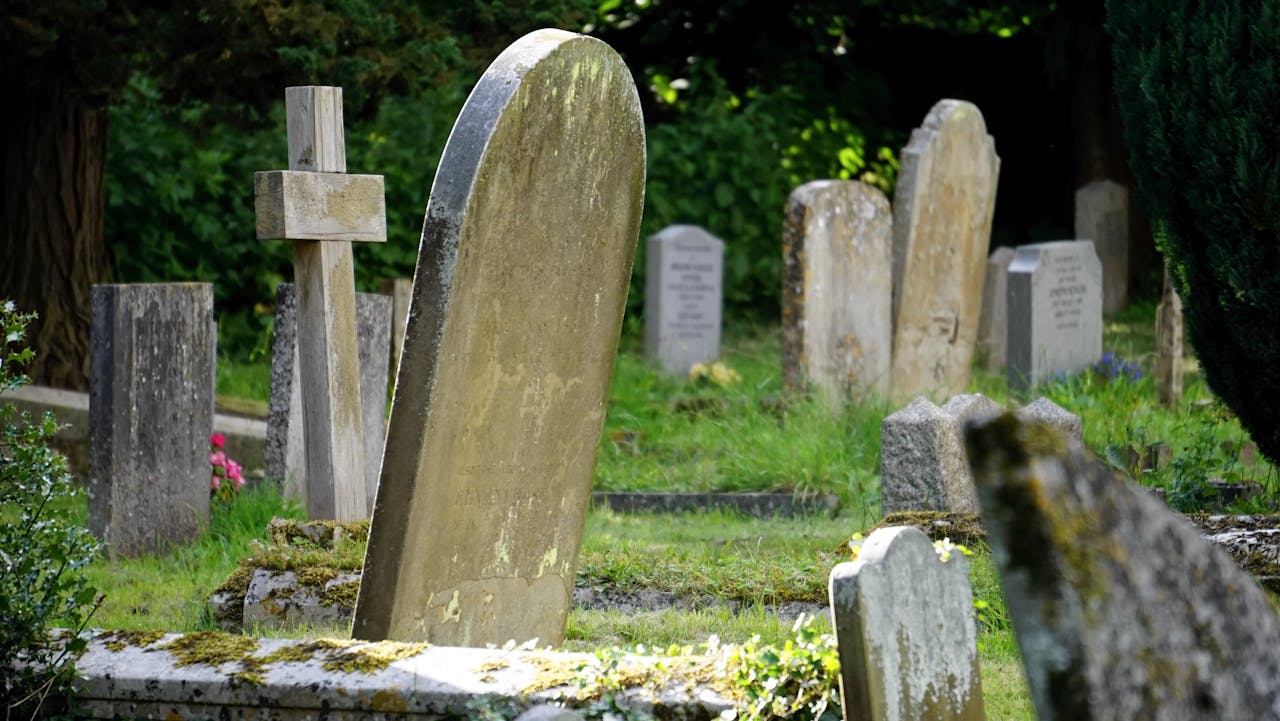September 2, 2024
Harambee Kingston, a non-profit organization, wants to turn a long-forgotten burial ground into a memorial honoring the dead.
Harambee Kingston, a non-profit organization that has maintained custody and ownership of the Pine Street African Burial Ground in Kingston, New York, since 2021, wants to create a memorial in honor of the enslaved Africans and Black Americans who were buried at the site and forgotten.
According to Newsweek, the Pine Street African Burial Ground was used from the mid-18th century to the late 19th century and was later covered up by residential development and other modern expansions.
Harambee Kingston, composed of a group of students from the State University of New York at New Palz (SUNY), is led by Professor Joe Diamond. Diamond and students in the Department of Archaeology at SUNY had the land surveyed and archived over the past few years, and those efforts led to the confirmation that human remains were buried in clustered patches on the parcel of land.
The group wants to raise $1 million in order to transform the formerly forgotten space into a memorial befitting the lives of the people who were buried in the graveyard. Diamond, an associate professor of anthropology at SUNY discovered the site while conducting an archeological survey of the city.
Tyrone Wilson, the founder of Harambee Kingston, told Newsweek that the organization bears a deep responsibility to honor those who had been buried at the site and to restore their dignity.
“This site holds the stories of those who endured unimaginable hardships. It is our responsibility to ensure that their legacies are not forgotten and that the disrespect they endured is rectified,” Wilson said.
Antoinette Jackson, an anthropology professor and the founder of The Black Cemetery Network, discussed with Newsweek how what happened to the Pine Street African Burial Ground fits into a larger story of the burial grounds and cemeteries of the enslaved or other Black populations.
“A good deal of them (burial sites) have been built over—by parking lots, schools, stadiums, highways,” Jackson also noted that these cemeteries are merely the “tip of the iceberg.”
New York has had a few burial grounds discovered in a similar manner to the Pine Street African Burial Ground, most notably Manhattan’s African Burial Ground Monument and a renovation project in Newburgh, New York which in 2008 uncovered 100 sets of remains and another piece of New York’s history of enslavement.
According to Wilson, local families have said that they will provide DNA samples and he wants to be able to connect any living relatives to their ancestors. In addition to Wilson, some of the other advocates are hopeful tests on the remains will reveal aspects of their lives like occupational hazards or whether they came to the area from elsewhere.
As Wilson told the Associated Press, he hopes that the pieces of information will help cultivate an understanding of personal history, something that is often lacking when it comes to Black Americans.
“One of the biggest issues that we have in African culture is that we don’t know our history,” Wilson said. “We don’t have a lot of information of who we are.”
RELATED CONTENT: Forgotten Burial Grounds Of Enslaved People Receiving More Attention Nationwide
Enter your Email Address below to get our fun-filled Newsletter!
© 2024 Black Enterprise. All Rights Reserved.

